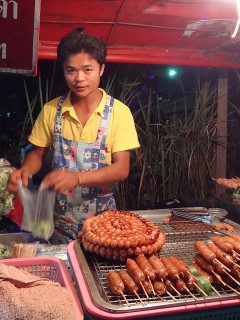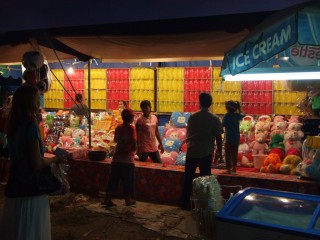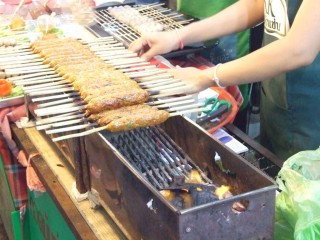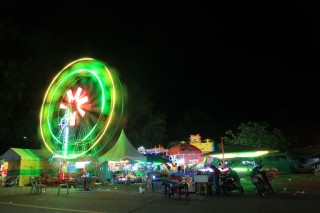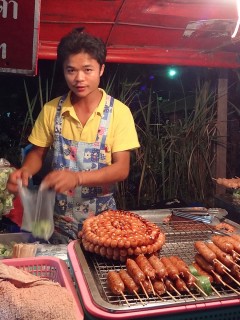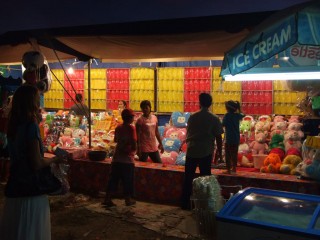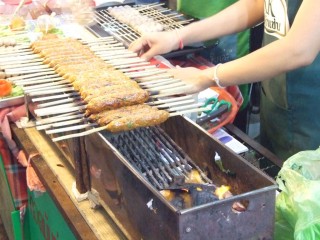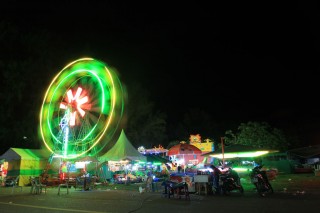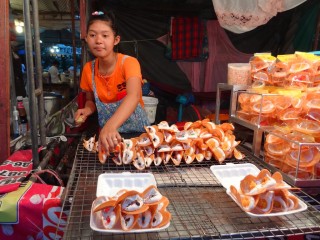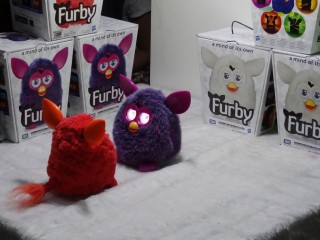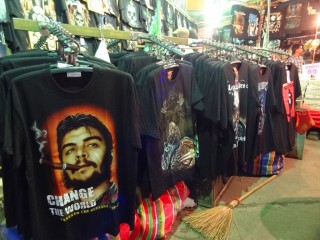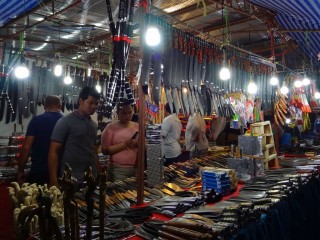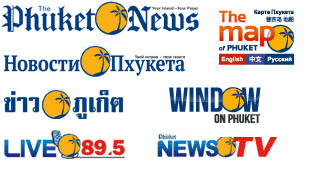Temple Fair Traditions at Wat Chalong
The Chalong temple fair is coming. You may not see it, but if you’re in the Chalong area in the first week of this month, you’ll certainly hear it. Wat Chalong is Phuket’s largest and busiest Buddhist temple, and every year during the Chinese New Year it hosts an exuberant seven-day festival, full of firecrackers and fun. This year’s fair will run from January 31 to February 6.
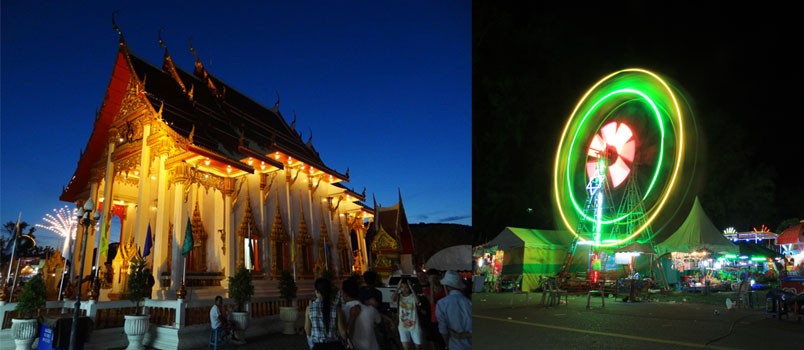
For those new to Thailand, or who have limited their travels to Phuket’s beaches, a temple fair offers a fantastic, and sometimes bewildering, peek into local colour and culture. Upon arriving, anyone with a notion that a Buddhist temple is a place of quiet reflection will soon learn that silence is in short supply during the week of the fair.
Aside from silence, however, most everything else is found in great abundance. Starting from its entrance along Chaofa Road West, the temple’s grounds are packed with vendors selling delicious street snacks and a wide assortment of things typically seen at Thai markets and fairs: T-shirts, CDs, toys, handicrafts, fabrics, sunglasses, bunny rabbits (alive), chickens (cooked), just to name a few. We’ve also spotted things that we never knew could possibly be things for sale. Like a bucket of goat skulls, for instance.
A big section near the road is reserved for plant and flower vendors, who sell orchids galore and do a roaring trade during the fair. You can also find an assortment of services, like foot massage and portrait photography.
If the shopping gets to be too much, kids could try out some of the fair’s amusement rides, from bumper cars to a giant bouncy castle to the ferris wheel. Or you could vie for a big stuffed animal or other prize you’ll have to lug around for the rest of the evening at one of the games stands with target shooting, ball-throwing and more. Entertainment is another fair attraction with local flavour, featuring such performers as Thai country music (luk-thung) singers, traditional southern Thai Nang Talung shadow puppeteers and Thai dancers.
The main hall of the temple offers a distinctly more serene sight, where the graceful merit-making practice familiar to all Thai Buddhists unfolds. Dozens of people can be seen lighting incense, presenting lotus flowers and making deep, respectful bows to the Buddha image – a moving sight and a reminder of the temple’s main function as a place of worship.
Some might wonder why the temple fair is always held during Chinese New Year, since Wat Chalong is a Thai, not a Chinese, temple. The answer lies in the 200-year-old wat’s history.
Back in the 1800s, during a heady time for tin mining in Phuket, thousands of Chinese labourers migrated to Phuket to work in the mines. In 1876, a Chinese worker rebellion broke out and Wat Chalong’s abbot at the time, Luang Por Cham, played an important role in sheltering terrified residents, calming the angry workers and restoring peace to the island. The abbot is still highly revered for this and other accomplishments under his guidance, and there’s a life-like statue of him sitting in a hall behind the main temple building.
Wat Chalong still maintains close ties with Phuket’s Chinese community, and for decades it has set the dates of the fair around the Lunar New Year to give people with Chinese heritage the chance to join the festivities.
Tips for enjoying Wat Chalong Fair
It’s best to go at sunset time, about 6pm to 7pm. With the daytime heat not much is happening before then, and if you go later it can be difficult to find a parking spot. Car parking is impossible at the temple but some is available nearby since residents in the area will allow people to park on their land for a small fee. Also, remember that, even though it’s a festive atmosphere, the temple is a religious place so dress respectfully and avoid wearing beachwear or skimpy clothing.





